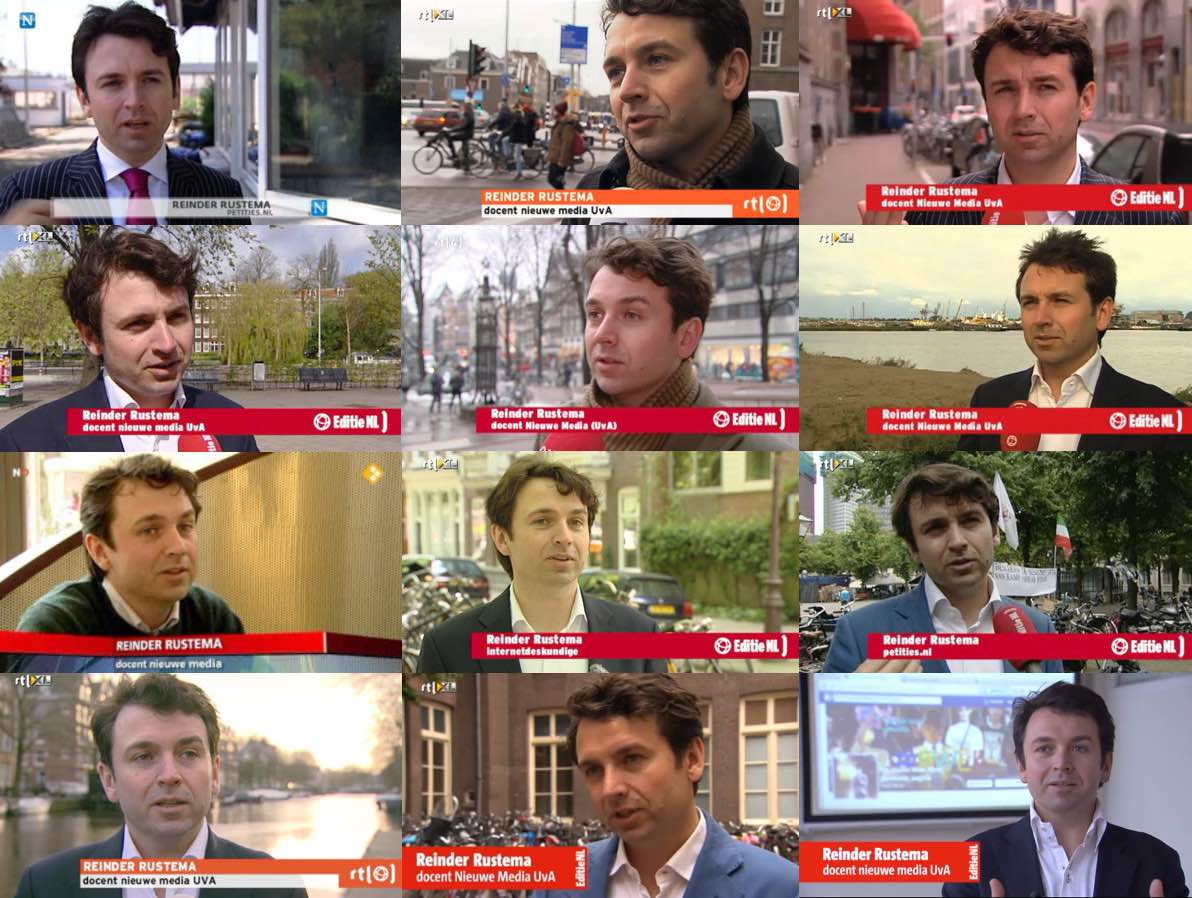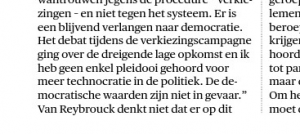 On the second ECI Day a book will be released to challenge the existing arrangements around the European Citizens Initiative. This needs to change and this book is the opening move. Read more about the book ‘An ECI That Works’ on ecithatworks.org. You can read my contribution there as a PDF or in the 1208 words below:
On the second ECI Day a book will be released to challenge the existing arrangements around the European Citizens Initiative. This needs to change and this book is the opening move. Read more about the book ‘An ECI That Works’ on ecithatworks.org. You can read my contribution there as a PDF or in the 1208 words below:
9. Why the ECI needs a Community-Developed Online Collection System
Reinder Rustema
Reinder Rustema is an e-democracy expert and creator of www.petities.nl – the Dutch national petitions website. In this article, he advocates replacing the Commission’s problematic online collection system (OCS) with a true open-source, community-developed OCS.
Why the Commission can’t provide effective signature collection software
Increasingly, initiators of European Citizens’ Initiatives (ECIs) are wondering why the European Commission is not providing user-friendly and problem-free software to collect signatures. Every single ECI campaign has encountered significant problems with the Commission’s ECI online collection system (OCS).
Campaigning software is unlike other products and services the Commission provides. It is impossible to define in advance what “user-friendly” means and simply buy or commission the right product in the market place. The software must be continually developed and adapted by trying new features, then listening to user feedback and immediately responding. The software is never finished. Ongoing product improvement must be in the DNA of the organisations that develop it. This fast-paced open-source approach to software creation is completely alien to how the Commission functions.
The Commission should stick to what it does best: translation and convening
What the Commission can best provide is what they have done well for decades: translate texts into all EU languages and organise stakeholder meetings. A user-friendly OCS can greatly benefit from EU-provided translation and periodic meetings between ECI organisers and translators to check how well translations are working. However, most of the Commission’s current online communications are of a technical or legalistic nature and consulted primarily by professionals. ECI translations need to be suited to the online campaigning work of chasing the user all over the web, often through peers, and stressing a single statement to convince the user to leave personal data in a database.
The OCS software’s real end-users are EU citizens
From the Commission’s perspective, the end-users of the OCS software are ECI organisers. Once they have provided campaigns with certified software, they consider their job is done. In fact, their real work is just beginning! The actual OCS software end-users are the millions of European citizens who sign an ECI. Problems they encounter with the software must be fixed immediately, even before they start complaining. The behaviour of users must be continuously monitored and analysed. ECI campaigns also need different designs and domains depending on the member state.
User-friendly platforms like Google, Apple and Facebook would never outsource the writing of their code. User-friendliness gives tremendous leverage, especially when combined with collecting personal data. Their business models will eventually come into conflict with Commission goals, though, so they are not to be trusted with the personal data of millions of Europeans. Meanwhile, campaigners need to hijack and infiltrate these popular user-friendly platforms. Only a committed community of open source coders with experience can do this, certainly not the Commission. The arms of an ECI’s OCS should be able to reach inside social media platforms to lure citizens outside to sign an ECI – where their personal data is protected. But the current ECI system does not even facilitate this.
A single company that wins a Commission tender cannot set up a user-friendly OCS either – although many will claim they can. Ongoing improvement of a product they do not regularly use is not in their self-interest. For software to be truly “open source”, it needs a community of small software companies and programmers to regularly test and improve the software. Making the source code public is not the same as using an open source development process.
Needs of national ECI authorities need to be integrated into the OCS
Perhaps the most important end-users of the data collected via the OCS are the national ECI authorities that validate the signatures. The OCS software therefore needs to also be designed in a way that understands how the validation procedure for each member state will be conducted. Well-designed software can help this process to be done as quickly, cheaply and reliably as possible. Software also needs security tools or “keys” to ensure that sensitive personal data is kept secure during the data collection, storage, and especially transfer processes.
Who can provide user friendly OCS software? Programmers who regularly use it!
A user-friendly OCS should be a system that can be embedded on all kinds of websites and platforms, while at the same time be properly certified.
ECI campaigns cannot be expected to have the technical know-how to create their own OCS. They can however, set up their own campaigning websites to promote their ECI. With platforms like WordPress, this is easy and cheap. Translating the campaign into different languages remains a hurdle, however.
A handful of small companies, NGOs and free-lance programmers specialised in the hosting of on- line “services for democracy” are in the best position to improve the open source software for ‘OCS services’: repeating the same trick for many ECI campaigns for a moderate fee. It would be in their self-interest to ensure it was as user-friendly and bug-free as possible. However, they would also need some financial incentive to invest their time in such efforts.
Rather than awarding a single large tender to one company, the Commission’s resources would therefore be better spent by providing a small amount of seed capital to support a community of small software firms and freelance programmers to develop open-source OCS software for the ECI. This would be coordinated by a community manager who is chosen by the community itself. This is someone with a good understanding of the technology who keeps the community together and organises periodic events. The Commission could perhaps also reward individual programmers who have significantly contributed to improving the software. This could, for example, be determined by their peers during periodic conferences organised in Brussels.
Such efforts would both cost significantly less money than the current approach and result in a much more user-friendly, effective and secure OCS for the ECI – as well as potentially contributing to EU economic development in the civic software industry.
The rules governing the OCS need to be simplified
The technical requirements for the ECI’s online collection system included in the ECI implementing regulation unfortunately create additional and unnecessary barriers to developing a user-friendly OCS via a community “open source” approach. The current requirements are so arcane and expensive that nobody except the Commission could fulfil them.
For example, the OCS certification procedure requires expensive documents to meet obscure ISO norms. Specialised legal experts must be consulted to purchase and understand them. However, these norms only impact working procedures and do nothing to ensure that the software’s technology itself is not flawed. The choice of other standards would help reduce software development costs and open the door to an effective open-source approach.
As this article has argued, the Commission is not the correct body to provide the OCS software for the ECI. However, it is in the ideal position to suggest changing the OCS technical specifications in the ECI regulation.
If the Commission is to fulfil its duty of ensuring that the ECI is as accessible to EU citizens as possible, it must both propose simplifying the regulation governing the OCS and support an open- source developer community to create a user-friendly OCS.
Reinder Rustema is an e-democracy expert. He created the Dutch national petitions website: www.petities.nl

